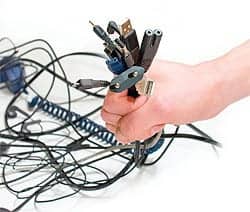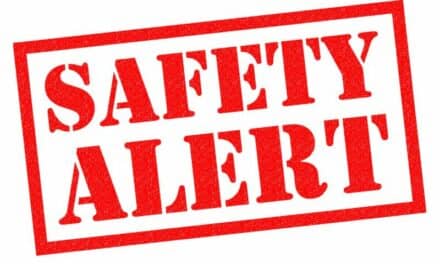 |
| Diane Watson |
Renowned for manufacturing its own medical devices and imaging products, MEDRAD Inc, Warrendale, Pa, has recently begun capitalizing on a growing trend for industry professionals shopping for the most cost-effective solution when it comes to servicing their equipment. Diane Watson, executive director of MEDRAD’s multivendor service (MVS) organization, spoke with 24×7 about its approach to customer service, MVS, and strategies for the future.
24×7: Tell us a little about your history with MEDRAD.
Watson: I started with the company in February of 2000 as the CIO. Two years ago, I came to MVS as the executive director of the team.
24×7: Can you tell us what you do on a day-to-day basis?
Watson: I direct and lead MVS, which includes the repair and global operations areas. We have a facility in Pittsburgh as well as in Maastricht in the Netherlands. Basically, I oversee the operations, the marketing, and the sales—all the functions of the business.
24×7: Can you explain MVS to our readers?
Watson: The MEDRAD multivendor service group offers service on products that other vendors manufacture. The overall MEDRAD business strategy focuses on devising, manufacturing, selling, and servicing imaging and therapeutic devices. Multivendor service takes advantage of MEDRAD’s strong service competency and extends it to other products that we do not manufacture. Specifically, we got into the MRI coil and ultrasound businesses.
24×7: Can you tell us a little bit about how MVS got its start?
Watson: MEDRAD got into MRI modalities and manufacturing coils in 1986. In the late 1990s, we started to offer service on those coils as well as on other OEM coils, so that was the start of the MVS business.
24×7: Are there any products that you currently do not service that you would like to?
Watson: Well, MVS currently services MRI coils and ultrasound transducers. We stay current in those markets, and whenever we see a demand from our customers, we make the R&D investment to be able to service those new probes or coils. There is constant innovation in regard to repairs to make sure we’re staying current with the newer models.
24×7: Who does MVS most frequently serve?
Watson: We primarily work with biomeds and clinical engineers. They’re responsible for supporting the hospitals and making sure the equipment is up and running, so whenever there’s a failed event on the coils or probes, that’s when they’ll call MVS. We get them up and running the next day with a loaner, and then give them an evaluation so that they can decide whether or not they want to repair it or do an exchange.
24×7: Are there any risks associated with MVS repairs?
Watson: I don’t really see anything as a significant risk because when we repair a product we maintain its intended use. We also go through our quality steps to make sure the repair itself was done properly. So the quality process and maintaining the intended use of the product are two ways we’re helping to minimize any risks.
24×7: Is MVS more cost effective than going back to the manufacturer?
Watson: It’s definitely more cost effective if the unit can be repaired. More often than not, the issue with the product is just some general preventive maintenance or parts replacement that can make the product useable again. So our customers can save a lot of money and extend the life of the product.
24×7: Does MVS offer regular preventive maintenance for its customers?
Watson: We do offer that to our customers, if that’s something they’re interested in. Usually, our customers wait until there is an actual event that causes the probe or coil to fail. We do have strategic account managers in the field that go to the hospitals and imaging sites and point out any potential damage that, through more wear and tear, could pose a problem, so that it can be fixed faster and more inexpensively.
24×7: Do you bring the product back to repair it, or do you make on-site repairs?
Watson: We have strategic account managers in the field and we also partner with the MEDRAD sales force, so we have over 200 people in the field who go to our customers and tell them about the multivendor service offering. Our strategic account managers will also look at some of their probes and give them some advice. However, we only do depot repairs. Before it comes into our shop we usually send a loaner to keep the customer up and running while we evaluate their product. We tell them what’s wrong with it and offer to make the repair in-house and then send it back out to them.
24×7: What do you do with products that get sent to you that you find to be unrepairable?
Watson: At that point, we have an exchange solution for them: they can exchange the product for one that’s still at a lower price than a new one from the OEM. We focus on the repair first philosophy, and we’re continually looking at things that are unrepairable and trying to come up with innovative ways to repair them.
24×7: Can you tell us about some of the innovations you’re using to help repair these products?
Watson: For one of the TEE probes that we do, we’ve looked at all the different reasons for failure and we’ve been able to get that TEE probe up to a 99% repair rate. We look at which pieces of equipment are coming in, what the damages and the trends are, and then we look for ways to make sure we can actually handle all the different reasons why they’re coming in. Then we look at the repair rates and try to get them up to 100%.
24×7: MVS focuses a great deal on product quality. Can you explain some of the ways you’re ensuring high-quality service?
Watson: Being a part of MEDRAD, we have to make sure that quality is definitely our number one focus. We make sure that we follow our nine-step evaluation process when a product comes in and when it leaves again to make sure that we understand where the problems are and that we’ve fixed all those problems. In addition to our own processes, we also look to external sources to make sure we’re pushing ourselves to the limit in terms of quality. We’ve recently received the ISO 13485:2003 certification, which demonstrates that we are doing everything necessary from an ISO perspective, even though that’s not something that is required in our industry. We’ve also received the Best Plant award from Industry Week magazine last year. They came in and evaluated our plants and required a lot of documentation. Often when you do these things, you get good advice on how to improve your quality systems, in addition to getting the certification and the accolades that come along with being the award recipient.
24×7: How is MVS planning to continue to expand its services? Watson: One way is through global expansion. I mentioned before that we opened a repair facility in Maastricht last year, which saw fairly good growth this year. We’re continuing to work in this market to make sure that customers are aware of the solutions available to them. We’re trying to get the customer to understand what third-party service providers can offer them over the OEM options, so there’s still some penetration available there. Another way MVS will grow is through product innovation on both new repair capabilities as well as getting in to new products where the customers have a demand for third-party service.
24×7: Does customer feedback influence the way your company does business?
Watson: It definitely does. In general for MEDRAD, we call it voice of customer. It’s really important to make sure we understand what’s going on with our customers. If customers have new probes or new coils that they’re starting to have issues with, we make sure we stay on top of it and make the investment to do the R&D and get them service. Actually, that’s how we got into ultrasound. The coils were really what we had worked on initially because we had some experience in that from our MR business unit. But a lot our customers were saying, “Hey, we could really use some help on ultrasound. Would you be able to do that for us?” So that’s how we got into that business, because we had requests from our customers.
24×7: How does MEDRAD plan to grow?
Watson: We will continue to focus on making sure we understand the customer. MEDRAD has a strong emphasis on pride and in its innovations and offering value to the customer base.
24×7: How do you think your company will change in the next 5 years?
Watson: I think MEDRAD will continue to offer more products and will get into additional applications and additional modalities. From an MVS perspective, I see us getting into new products as well. The core of the company and our philosophies will stay the same, but it’s important for us to continue to grow through innovation and get into new modalities and repair capabilities.
24×7: What are the challenges presently facing the medical device industry?
Watson: Well, there are definite cost pressures out there. There’s the recent DRA (Deficit Reduction Act of 2005) that’s causing a lot of budget cuts for our customers, so that’s certainly an issue that we’re facing. What we try to do, especially on the MVS side, is offer a cost solution that allows them to save, rather than spend, money on equipment repair and replacement.
Stephen Noonoo is associate editor of 24×7. Contact him at .




